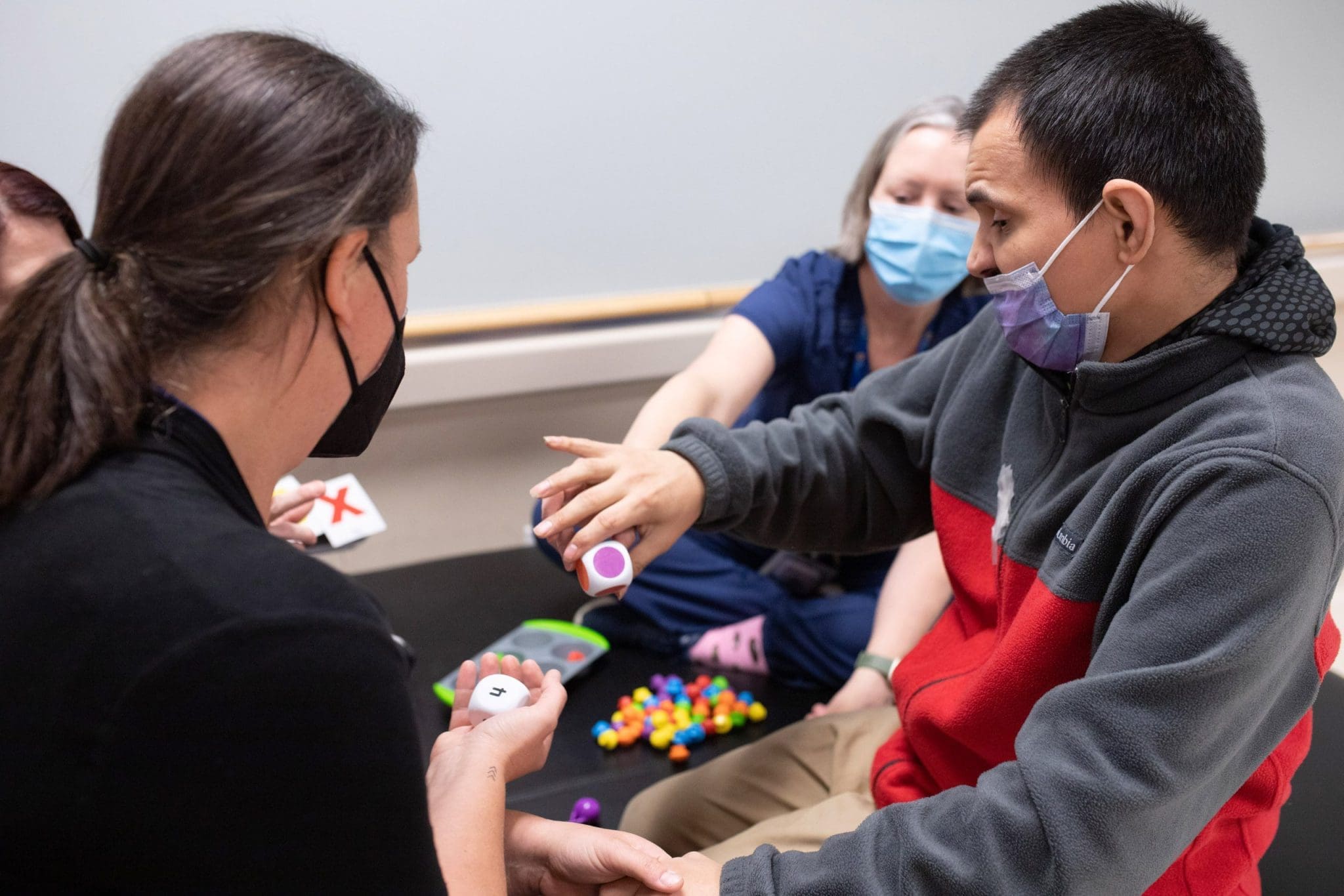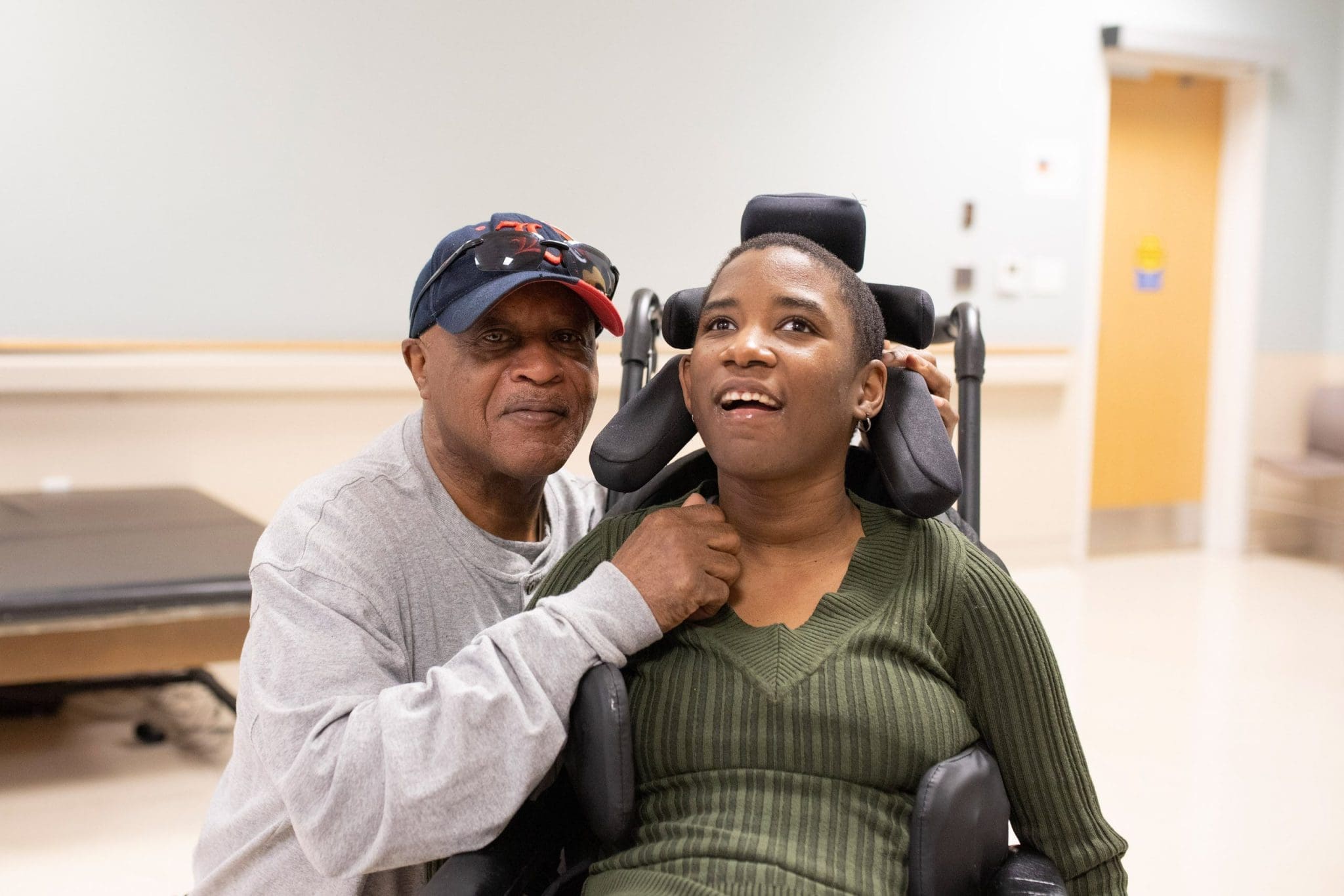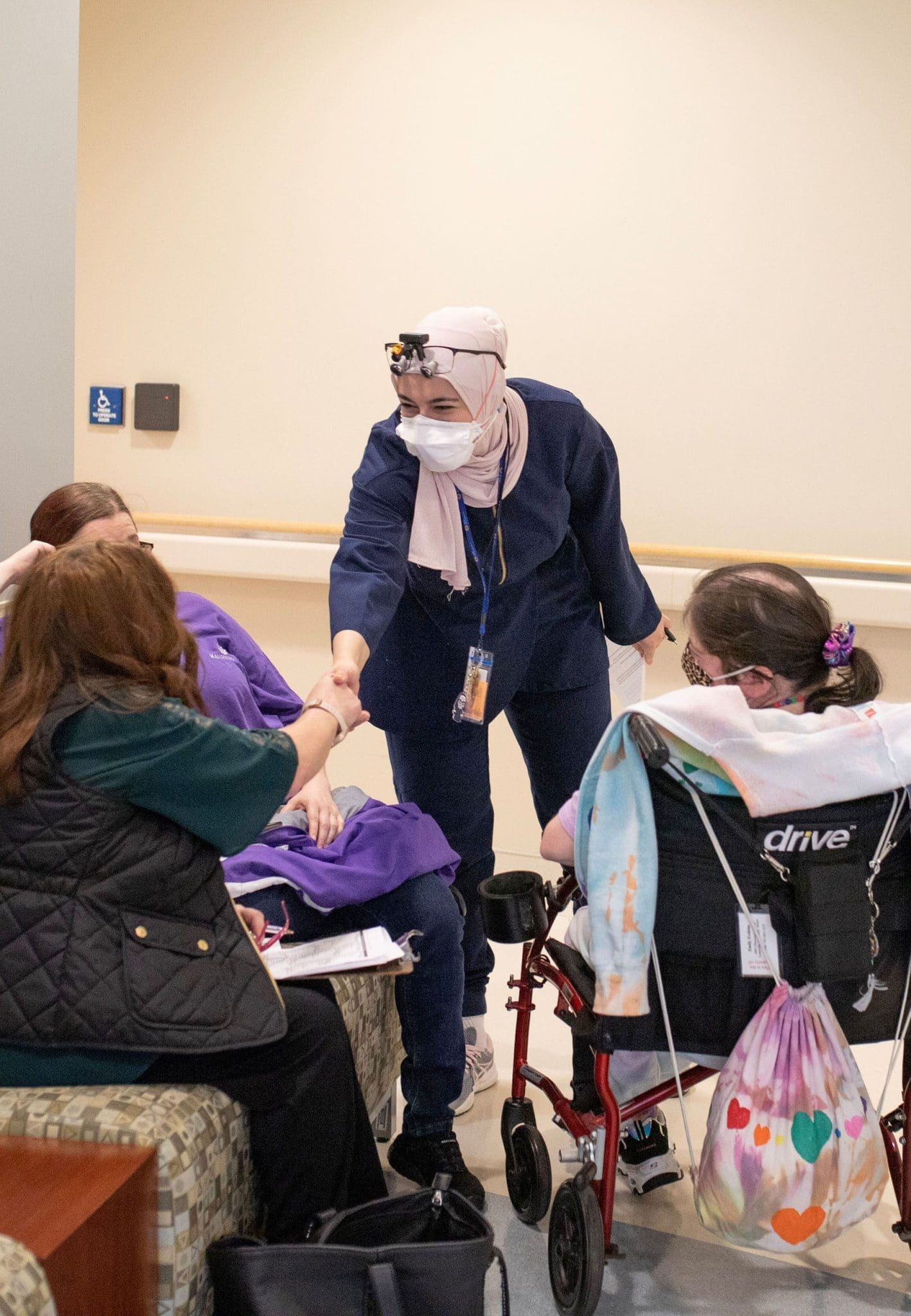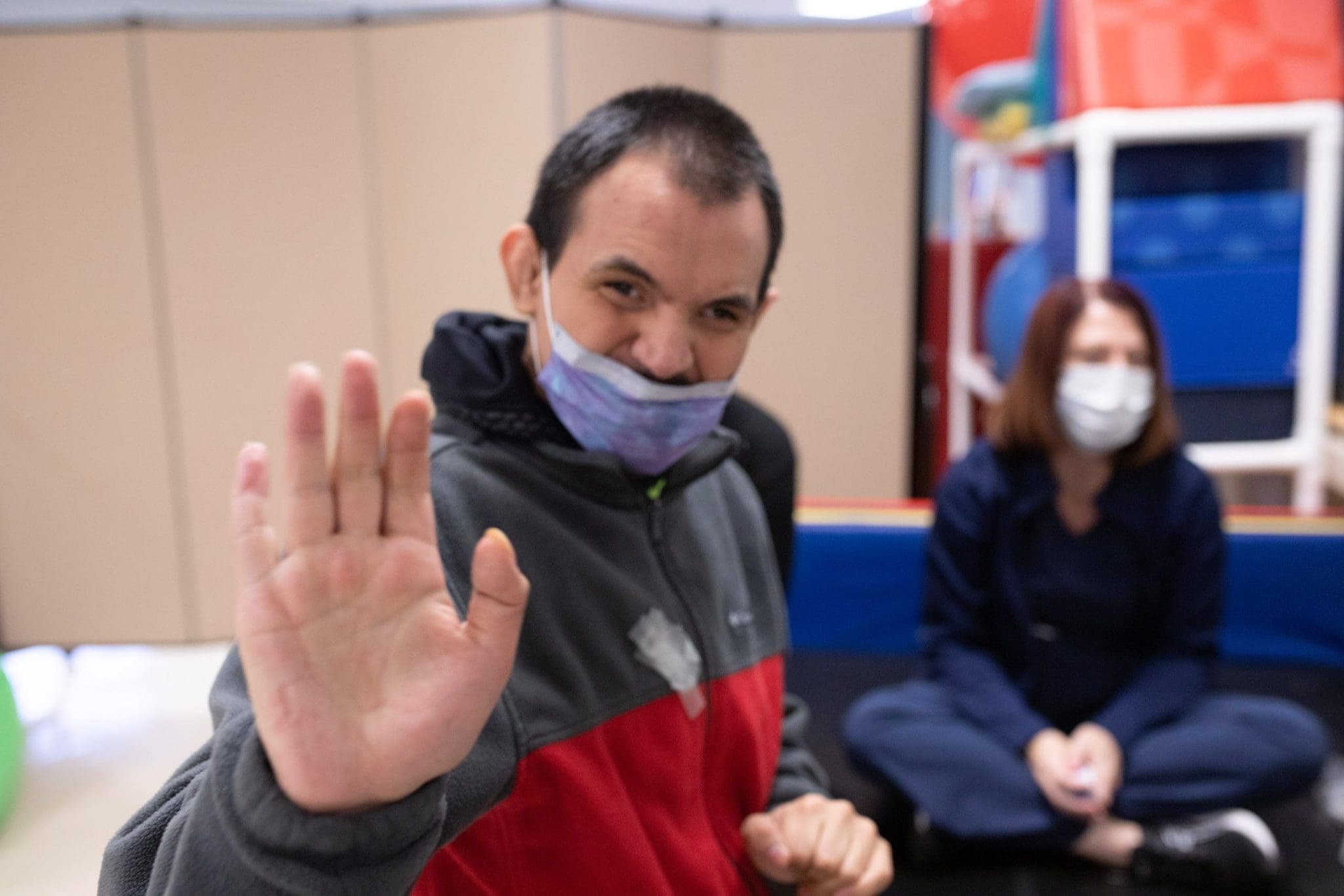© 2025 Kramer Davis Health. All Rights Reserved.
PSYCHIATRY
Changing mental health for the better!
Our psychiatrists recognize that the most important individual in the room is the patient. They take the time to listen to their needs and provide comprehensive treatment and compassionate care starting from the first meeting. Their collaborative approach allows for tailored treatment plans that are beyond just medication.





Obtaining proper mental health care can be a struggle for adults with IDD. Our team seeks to fill the void in our communities improving access to quality care.
Behavior is a form of Communication
In Psychiatry, we must view problematic behaviors as a form of communication. Sometimes, when words cannot be used to communicate, a new behavior may be attempted to get the point across. We ask hard questions. What is this person attempting to communicate with their parent, caregiver, or us? What is the motivation behind this pathological and often aggressive behavior? Can the patient control themselves? What makes the problematic situation better? What makes it worse?
Collaborating to solve problematic behavior
We receive many referrals for families in ‘crisis’ situations. Crisis intervention and prompt follow-up are often needed. Medications alone rarely provide a ‘cure.’ Most patients improve when changes are made in multiple areas, including exercise, social activities, and changes in interactions. Sometimes we find ourselves in a mystery-solving type of situation. The patient may present with a behavior or mental health issue that has a cause rooted in an undiagnosed medical or dental problem. Our psychiatry team communicates regularly with multiple disciplines both within our clinic and outside of it to make the additional connections necessary for them to receive the care and support they deserve. This collaborative effort allows us to solve these mysteries and give our patients the care they deserve.
Advocating for our patients
Our therapists and clinicians are not just healthcare providers, we are advocates for our patients. There isn’t only one particular story or just one patient who has made an impact on our lives – it’s every patient, every small success, every caregiver going above and beyond…it’s every story. We are better every day because of our amazing patients.
What would make life easier or more meaningful for the patient?
The best way to prepare for an initial Psychiatric evaluation is to think about your priorities and desired outcomes. The patient and their family should reflect on what their goals are, and what they hope to achieve. You can’t know where to go if you don’t have an idea of where you want to be.
You will feel respected, heard, and understood.
Upon entering the clinic, patients, and caregivers are welcomed in a calm, clean environment. Our team introduce themselves and engage with both the patient & caregiver. Throughout each appointment, clinicians and staff ensure that we communicate each step in a way that our patients can understand (verbal, visual, pictures, communication devices, etc). In most cases, a lot of information is gathered from the caregiver.
Assessing functions and deficits helps us create a plan
We perform a thorough Psychiatric and Multi-Disciplinary evaluation during our initial connection. You can expect an explicit plan outlined by the attending Psychiatrist to help you meet your goals.
Empowering you to be an active partner in the process
We want every patient to feel respected, accomplished, and valued as they walk out our doors. We want every family member and caregiver to feel supported and heard. The intention of our mental health team is to find the tools to help increase the patient’s quality of life and independence. We empower you to be an active partner in the process and take the methods used and carry them over into the home. We hope you feel hopeful for the future, as you see that you have a whole team working together to coordinate the best possible care and outcome. You came to the right place.
Kramer Davis Virtual Tour
4:54 duration
Frequently Asked Questions
Our team answers some of our most frequently asked questions in the area of psychiatry for those with IDD.

How do I prepare for our appointment?
The best way to prepare for an initial Psychiatric assessment is to think about the problems you are encountering, and to make note of your observations. What is your desired outcome? Are you in crisis? What needs to change now?
What’s the problem? What do you do to treat the problem? How long will it take for me to get well?
Our most frequently asked questions have different answer depending on the person asking. There are no simple answers. Our purpose is to look and listen in order to discover the unique problems for each individual. We are attentive to the details and work to provide you answers with our assessments.
What happens if I miss appointments?
One of the purposes of consistent appointments is to continue upward progress. Skipped appointments, or ‘taking a break’ can result in stalling of progress or even of regression in mental capabilities. Keeping your appointments allows for you to continue meeting goals and improving.
Is there a medicine for this?
In the psychiatric care of persons with IDD, medications alone rarely provide ‘a cure.’ Most patients improve when changes are made in multiple areas, including, exercise, social activities, and changes in the interactions patients have with care providers (behavioral interventions).
Why is my loved one behaving in this way?
We view behaviors as a form of communication. So we ask the question, ‘What is this person trying to communicate through this potentially problematic behavior?’ We work with you to figure out what can make the situation better, what things trigger the behavior, and we figure out a solution for the betterment of the patient’s mental health.
Please Note: Services may vary for each Kramer Davis clinic location.